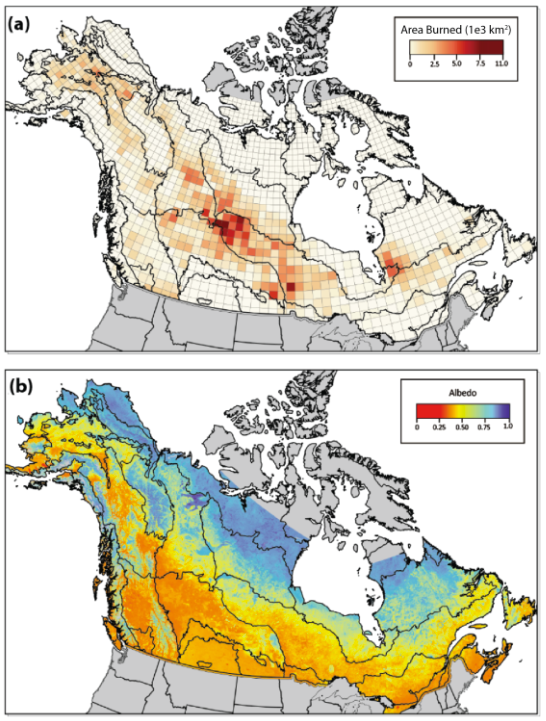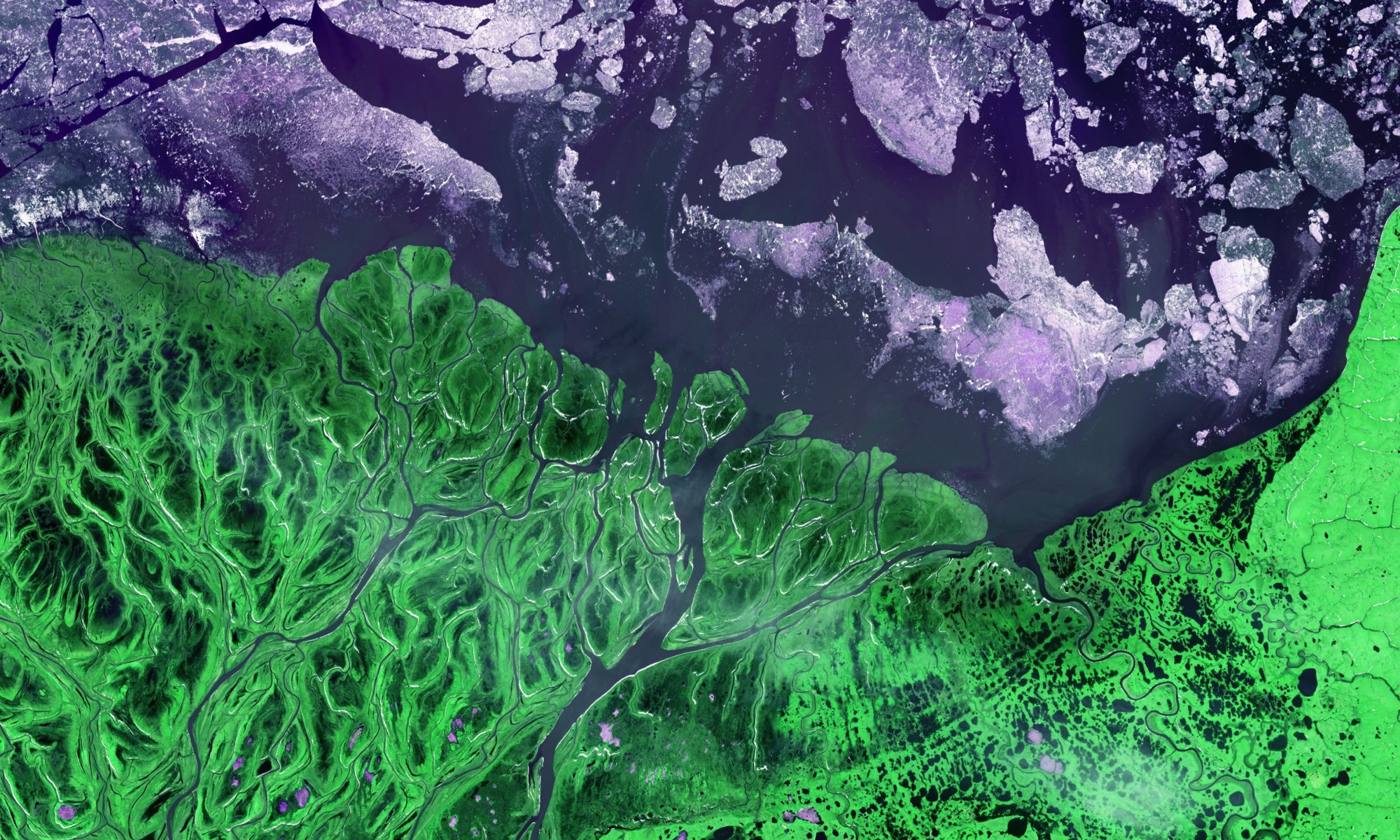
Climate change will lead to decreases in mean annual post‐fire albedo and a decreasing strength of the negative radiative forcing, according to research published recently in Global Change Biology.
This suggests climate change will decrease the strength of the cooling effect typically observed in post-fire landscapes.
GEODE lab lead Scott Goetz, post-doctoral scholar Richard Massey, along with NAU colleague Michelle Mack, collaborated with a team of researchers from Woods Hole Research Center (WHRC) to predict fire-driven changes in albedo under historical and future climate scenarios across boreal North America using WHRC’s MODIS-derived “blue sky” albedo product.
They estimate that, under historical climate conditions (1971-2000), fire induced changes in albedo generate an annual mean cooling of -1.77 ± 1.35 W m-2.
This is changing for fires burning in the modern era.
For fires that burned in the year 2016, models predict the cooling effect from long‐term post‐fire albedo will be reduced by 15%–28% due to climate change.
Read the full paper here.

